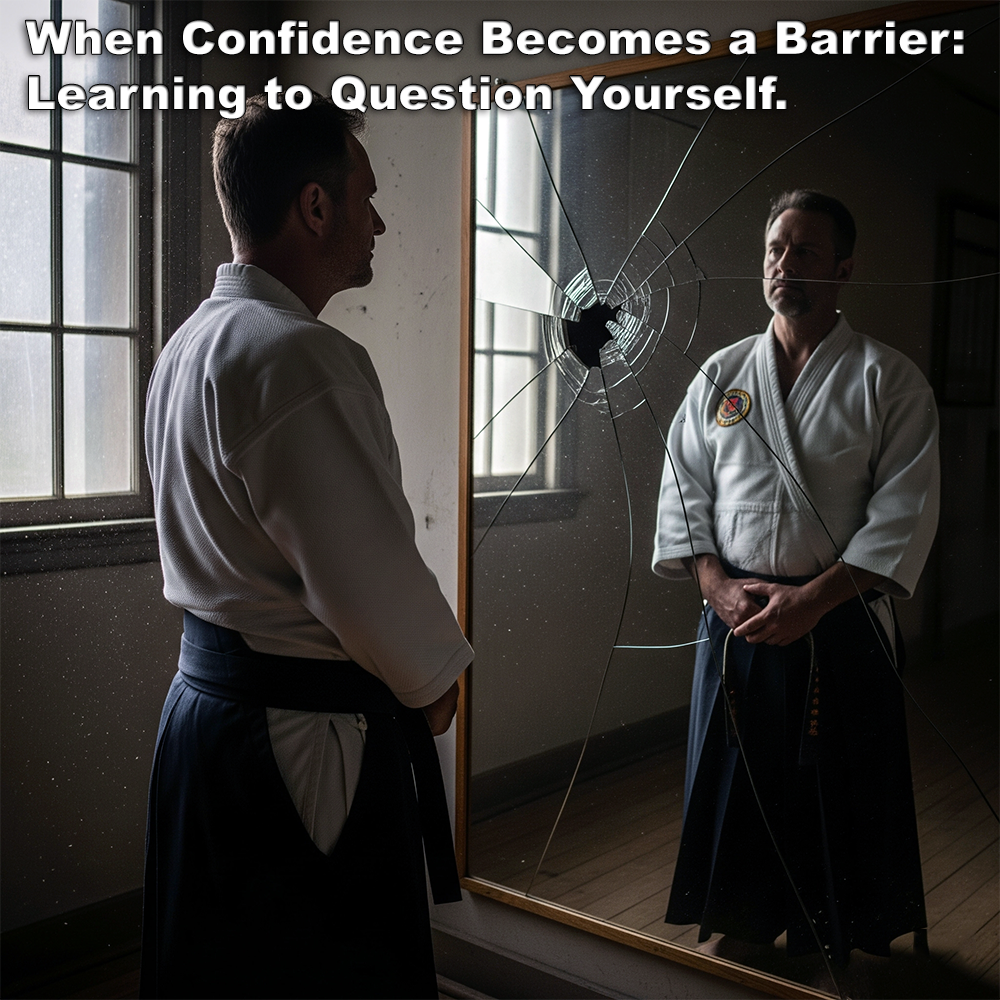
(Approx 2 minute 30 second read)
I’m sure many of you are aware of the Dunning–Kruger effect – I’ve written about it before. It’s the tendency for people with limited knowledge or skill to overestimate their ability.
.
But without the ability to recognize your shortcomings, how can you hope to improve?
.
Here lies the dilemma: how can someone improve if they don’t know they need to improve? This is the paradox. The very people most in need of reevaluating their skills are often the ones least capable of recognizing it.
.
This often applies to experienced instructors. The more confident you are in your knowledge, the less likely you are to question it.
.
I rarely, if ever, quote my grade as it’s not relevant, but I do hold a high dan grade and title. However, I know my grade is only relevant to me in my group. I still have ties to mentors and others who are more experienced and knowledgeable than me to fill the gaps that appear from time to time. This awareness keeps me grounded – a reminder that the greatest adversary in martial arts is often yourself, and the dreaded overconfidence. After all, you can’t be an expert in everything, right?
.
The martial arts teach you to face adversity – and sometimes the greatest adversary is yourself and the dreaded overconfidence.
.
It’s hard to confront the possibility that you’re not as knowledgeable as you think, isn’t it?
.
In recent years I’ve come across several individuals (instructors) who are outstanding in their own field – legends in their own minds. They exude confidence and have the admirable ability to talk themselves up.
.
Some of the things they believe, say, and teach have left me gobsmacked. They really could do with a dose of humility medicine.
.
This isn’t easy. It requires a willingness to admit that what you’ve been practicing might not be as effective as you thought. But it is necessary.
.
Now, some of you might be thinking, “This doesn’t apply to me.” The thing is, there are many instructors who think their karate, their skills, are literally the bee’s knees and without equal. But if the Dunning–Kruger effect teaches us anything, it’s that we’re often blind to our own weaknesses.
.
It isn’t just about critiquing others; it’s about encouraging all of us – myself included – to constantly evaluate where we stand.
.
I’ve fallen into this trap myself. But by regularly questioning my own skills, asking questions, and trying different methods and styles, I was forced to re-evaluate what I thought I knew. This ongoing process of self-reflection and testing is essential to understanding that what you’re doing may not cover everything after all.
.
So how do we reach the people who need to learn the most, who are often the least aware of it? We can’t force anyone to recognize their own blind spots.
.
Reaching those who believe they already ‘know it all’ is a difficult challenge. Ego and identity are often wrapped up in what we think we know, making direct criticism easy to reject. The best approach is just patience, hoping that in time they too will feel safe enough to reconsider their beliefs, opening the door for change.
.
I encourage everyone to dig deeper. Don’t be satisfied with what you know. Ask yourself tough questions, even if it’s been taught by a respected instructor. The fact that you ask questions is a sign of awareness, not weakness.
.
No one is above the need to grow. The first step is recognizing that you might not be as good as you think you are.
.
Recognizing your limits isn’t a weakness – it’s the foundation of real knowledge.
.
.
Written by Adam Carter – Shuri Dojo
